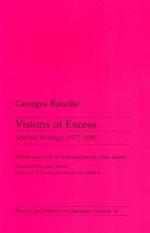
|
| Name: _________________________ | Period: ___________________ |
This test consists of 15 multiple choice questions and 5 short answer questions.
Multiple Choice Questions
1. What characterizes man in "The Eye"?
(a) Longing for purity.
(b) Desire for violence and violation.
(c) Horror of eyes and insects.
(d) Longing for sacrilege.
2. What form does Bataille take after being a boy in "[Dream]"?
(a) A girl.
(b) A priest.
(c) An American gentleman.
(d) A butcher.
3. What are flowers not matched by, in "The Language of Flowers"?
(a) The purity of the sunshine.
(b) The corrupt hands that pick them.
(c) A show of human love.
(d) The work of bees.
4. In what piece of writing did Bataille record his childhood?
(a) The Language of Flowers.
(b) [Dream].
(c) The Lugubrious Game.
(d) The Eye.
5. What do flowers witness, in "The Language of Flowers"?
(a) The reason for the plants' existence.
(b) The architectural order of fields and forests.
(c) Nothing but a moment in the life of the plant.
(d) The life and death of love.
6. When was George Bataille born?
(a) 1897.
(b) 1902.
(c) 1892.
(d) 1899.
7. Why did Bataille attack Nietzsche?
(a) For going insane.
(b) For admiring Emerson.
(c) For megalomania and failure of ideas.
(d) For failing to embrace the decomposition of culture.
8. How did Bataille rebel against his father?
(a) By taking lovers.
(b) By becoming a Protestant.
(c) By quitting school.
(d) By running away from home.
9. What did Bataille describe in "The Lugubrious Game"?
(a) A brown smudge.
(b) Bestiality.
(c) Anal fixation.
(d) Sex play with eyeballs.
10. Where did Bataille work until 1942?
(a) The National Gallery in London.
(b) Bibliotheque Nationale in Paris.
(c) El Prado in Spain.
(d) Ecole des Beaux Artes.
11. How should materialism be disclaimed, in "Materialism"?
(a) By including all idealism.
(b) By replacing idealism with matter.
(c) By excluding all idealism.
(d) By superseding idealism with dialogue.
12. What is the first stage of revolution, in "The Use Value of D. A. F. de Sade"?
(a) Staking a claim to a new kind of authority.
(b) Appropriating the language with which groups claim power.
(c) Expelling a group from power.
(d) Portraying your revolution as a utopian project destined to succeed.
13. When did Bataille form the Popular Front?
(a) 1933.
(b) 1941.
(c) 1935.
(d) 1929.
14. What claim does Bataille discuss in "The Deviations of Nature"?
(a) That nothing is more horrifying that carnival freaks.
(b) That nothing is more horrifying than snakes.
(c) That nothing is more horrifying than rats at carnivals.
(d) That nothing is more horrifying than man.
15. What does Bataille say was the driving force beneath his heterodox theory?
(a) Obsession with priests.
(b) Homoerotic terror.
(c) Oedipal terror.
(d) Obsession with excrement.
Short Answer Questions
1. When did Bataille publish his first pamphlet?
2. Whom does Bataille contrast to the sovereign in "Psychological Structure of Fascism"?
3. How do philosophers use natural forms, in "The Language of Flowers"?
4. How does Bataille describe his father?
5. What does Bataille say about monsters in "The Deviations of Nature"?
|
This section contains 511 words (approx. 2 pages at 300 words per page) |

|




